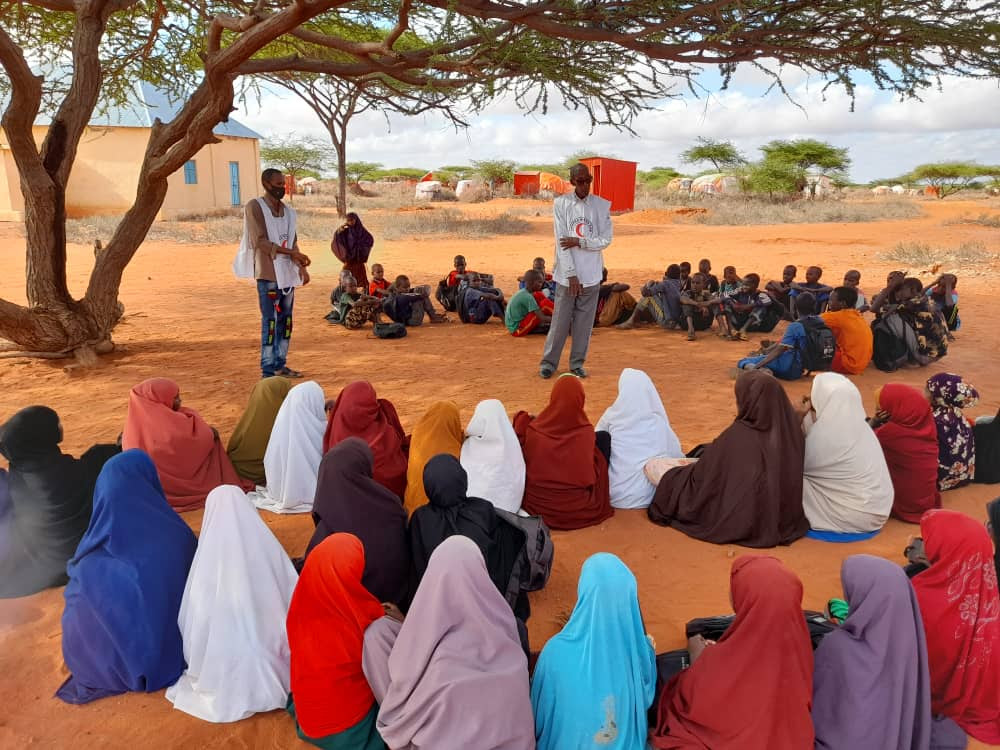Resolve to Save Lives report shows how public health specialists around the world controlled Lassa fever and other outbreaks last year
New York, NY, June 18 2024 -/African Media Agency (AMA)/- In February 2023, a market trader in Accra, Ghana, died from severe bleeding in a local hospital. Shortly after, her healthcare provider fell ill. Public health officials quickly identified the cause: Lassa fever, a deadly and contagious disease spread by rats. The Ghana Health Service responded promptly, finding over two hundred people who came in contact with the trader, while also educating the public on the disease’s symptoms. Within weeks, their decisive actions identified 27 additional cases and successfully contained the outbreak, preventing its spread to neighboring countries and averting further fatalities.
This is just one example of how public health specialists around the world are stopping disease outbreaks in their tracks, before they have a chance to make headlines. Today, Resolve to Save Lives is releasing its “Epidemics that Didn’t Happen” report, celebrating six successful outbreak responses in 2023 and demonstrating the transformative impact of sustained investment in epidemic preparedness.

“Preparedness works. We can change the trajectory of an outbreak when we invest in preparing for it and responding rapidly after it has been detected,” said Dr. Tom Frieden, President and CEO of Resolve to Save Lives. “While the hard work of epidemic preparedness and health protection often goes unnoticed, it can mean the difference between a small outbreak and a large epidemic.”
Along with Lassa fever in Ghana, the report chronicles how public health workers stopped cholera in Bangladesh, dengue fever in Somalia, H5N1 (bird flu) in Finland, Neethling disease in Cambodia, and leptospirosis in Vanuatu. In each case, investments in health systems saved lives, prevented human suffering, and safeguarded livelihoods. The report highlights lessons that can be applied anywhere, to any health threat:
- Trusted health systems are the bedrock of epidemic prevention: The most effective health systems are sensitive to the needs of the local communities they serve, paying attention to signals from community members and taking appropriate action in response. This requires building deep, trusting relationships over many years – not just engaging communities in a crisis. For example, in Finland, strong collaboration between human and animal health officials and fur farmers proved pivotal to allowing a rapid and robust response to the H5N1 outbreak on the fur farms.
- Timeliness is key to preventing full-scale epidemics: Health systems that respond quickly to outbreaks see fewer deaths and lower economic costs. In Bangladesh, a joint assessment and response team receives an alert within 24 hours of any suspected or confirmed case of cholera in one of the Rohingya refugee camps, including details about the patient and location. As a target to measure timeliness in responding to an outbreak, Resolve to Save Lives champions 7-1-7: 7 days to detect a suspected outbreak, 1 day to notify public health authorities, and 7 days to have all essential control measures in place.
- Everyone has a role to play in outbreak detection and response. From health care workers who serve as the link between health systems and local communities to the farmers who report suspicious symptoms in their livestock, the actions of individuals can mean the difference between a contained outbreak and a full-scale epidemic. In Cambodia, community rangers in a wildlife sanctuary in Northern Cambodia spotted the first case of Neethling in wild cattle, helping stop spread of the disease.
The report also highlights a growing threat to global health: climate change. Several of the outbreaks highlighted in the report were associated with severe weather events, including cyclones, flooding and unseasonal rains. With extreme weather expected to become even more common in many areas already prone to outbreaks, the need for responsive health systems is more urgent than ever.
“While we witnessed successful responses to disease outbreaks last year, there are far too many that we are still not ready for,” said Amanda McClelland, Senior Vice President, Prevent Epidemics at Resolve to Save Lives. “Significant gaps in preparedness remain, particularly in low- and middle-income countries. Leaving these gaps unchecked places all of us in danger.”
The World Bank’s new Pandemic Fund will bring additional resources for pandemic prevention, preparedness, and response. Still, global funding falls short of what is needed to respond to outbreaks quickly and effectively. Recent research co-authored by Resolve to Save Lives found that it would cost approximately $124 billion over five years to make the world better prepared for disease threats – a relative bargain compared to the estimated $20 trillion that COVID-19 cost the global economy. In addition to funding, effective implementation on the ground is required to prevent epidemics and save lives.
This is the third edition of Resolve to Save Lives’ “Epidemics That Didn’t Happen” report. It was developed in collaboration with health ministries and global health and environmental organizations including the World Health Organization, the International Federation of the Red Cross, and the Wildlife Conservation Society.
Read the full report at https://etdh.resolvetosavelives.org/2024/
Distributed by African Media Agency (AMA) on behalf of Resolve To Save Lives.
About Resolve to Save Lives:
Resolve to Save Lives is a not-for-profit organization partnering with countries, communities and organizations to prevent 100 million deaths from cardiovascular disease and make the world safer from epidemics. To find out more, visit: resolvetosavelives.org or X @ResolveTSL.
Media Contact:
General inquiries, Resolve to Save press@resolvetosavelives.org
The post New report offers lessons on stopping disease outbreaks, features two successful responses in Africa appeared first on African Media Agency.













